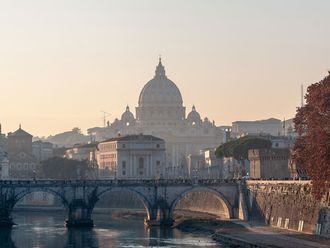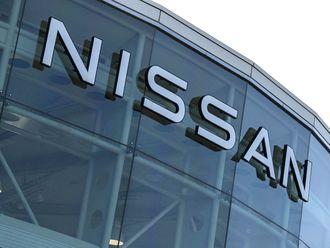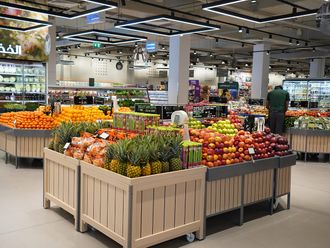Cannes: As growing numbers of shoppers move online, European mall owners are looking to pull in customers by including services that can’t be replicated on the web, like hospital care and government offices.
Malls must become more like full-service community centres to survive in the face of a growing list of failed retailers like HMV and Blockbuster. On the flip side of that retail revolution, experts see big gains in warehousing as more goods are sent and returned via post.
“The days of the stand-alone mall are numbered,” said David Roberts, chief executive of architect Aedas. “In 20 years time, you will find stores that sell books and DVDs replaced by sites that give people a reason to go the mall... art galleries, education centres and health and spa treatments,” he said.
Florencio Beccar, fund manager of CBRE Global Investors European shopping centre fund, cited the recent purchase of a mall in Germany, saying the fact it included a large medical centre was “a big plus”.
CBRE Investors, which has about €14 billion (Dh66.75 billion) of retail property under management in Europe and 5,000 tenants, also owns a mall in southern Sweden with a library and a local municipal office.
Mall owners like Land Securities, Intu, Westfield and Klepierre have increased the number of restaurants and cinemas to persuade shoppers to stay longer, and offer promotions to reward frequent shoppers who can be tracked via their mobile phones.
But these steps don’t go far enough, some experts say, in light of a forecast last month that 90 per cent of retail sales growth in Britain, France and Germany between 2012 and 2016, or €91.5 billion, is expected to be online, according to the property arm of French insurer AXA.
As well as changing what’s inside, mall owners will need to borrow ideas from developing markets like Dubai and China where centres are part of wider mixed-use developments where people live or include open spaces where they spend leisure time.
“Convenience and internet shopping has created a breakdown in community structures and there’s a gap there waiting to be filled,” he said.
“The big thing that’s missing is that unlike almost every other industry they haven’t caught on to building their own brand. Why not have a bluewater.com?” said Joe Valente, a managing director at JP Morgan Asset Management, referring to the large mall of the same name in southeast England.
“Landlords fear cannibalising sales but in 10 to 15 years they won’t have a choice because they will be cannibalised anyway,” he said.
“On a mall website you could book a parking space, a restaurant table or your car to be valeted. Why do people go to Covent Garden?” he asked of the central London district.
“There’s nothing there you won’t find anywhere else but I would argue it’s a strong brand.”
Christian Ulbrich, chief executive for Europe, Middle East and Africa at property consultant Jones Lang LaSalle, said: “Stores will get bigger and become more like adventure parks that attack all of your emotions.
“For example, Globetrotter has a climbing wall and cycle track in its Frankfurt store to try out its products,” he said of the German outdoor clothing and equipment retailer.












